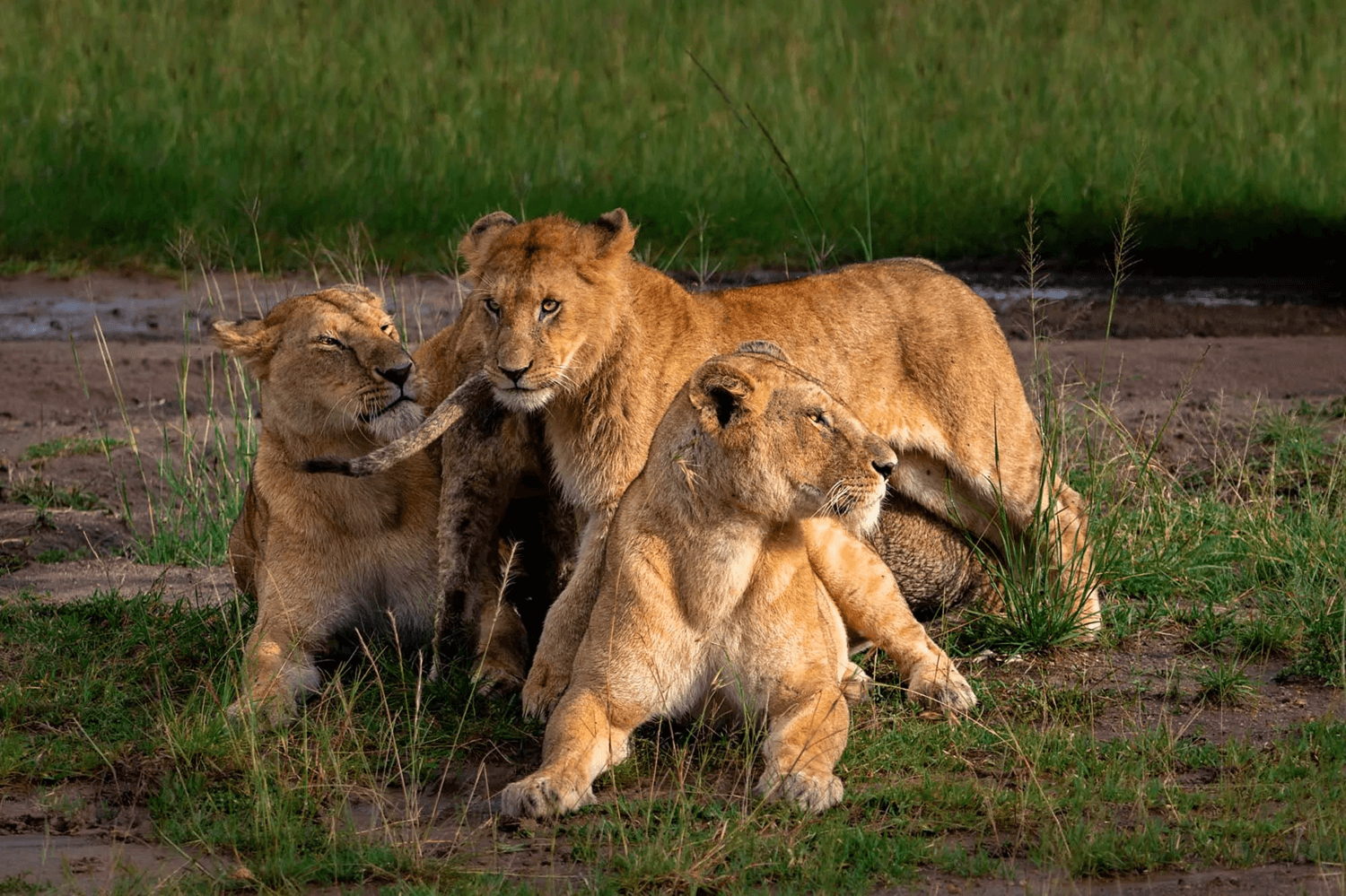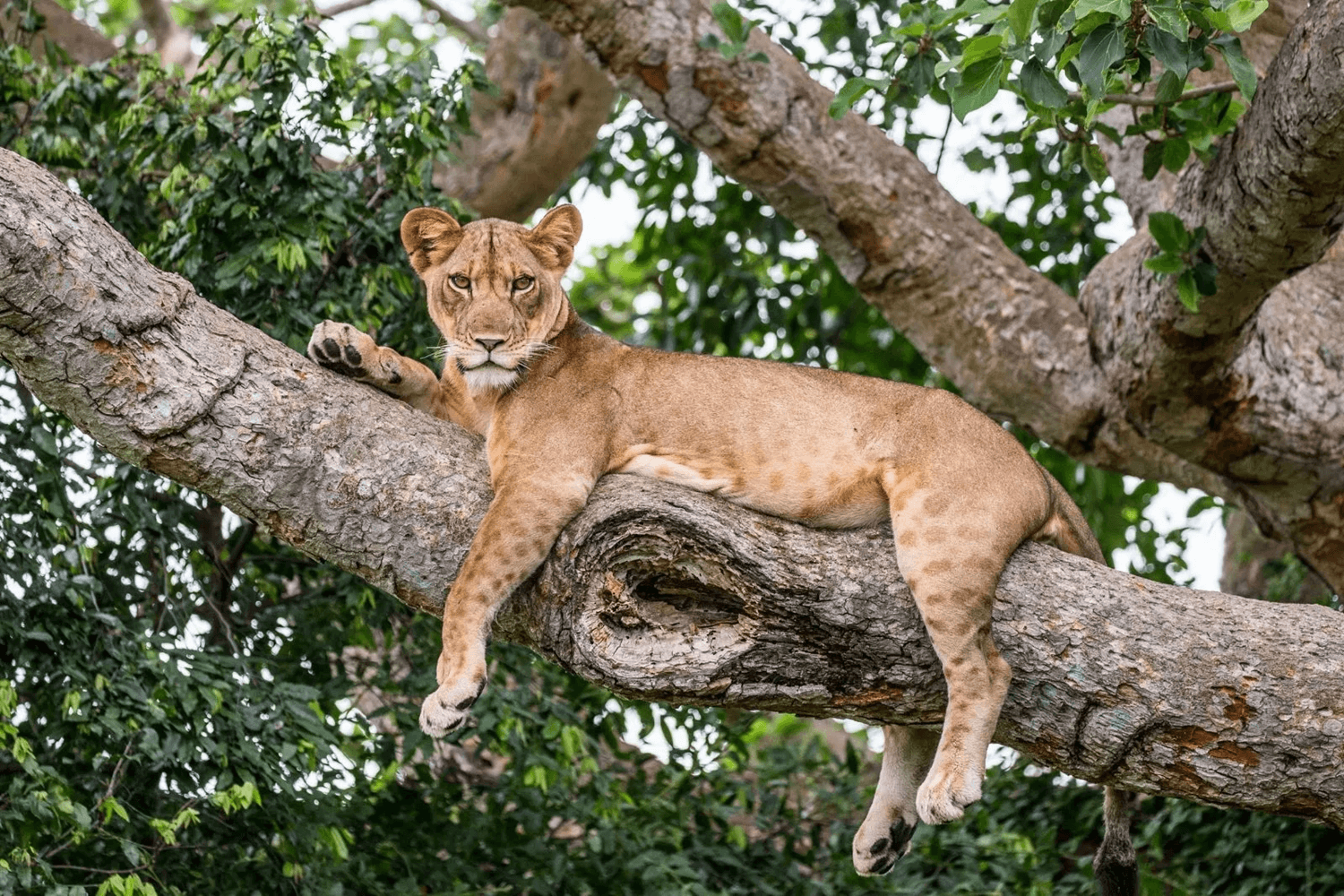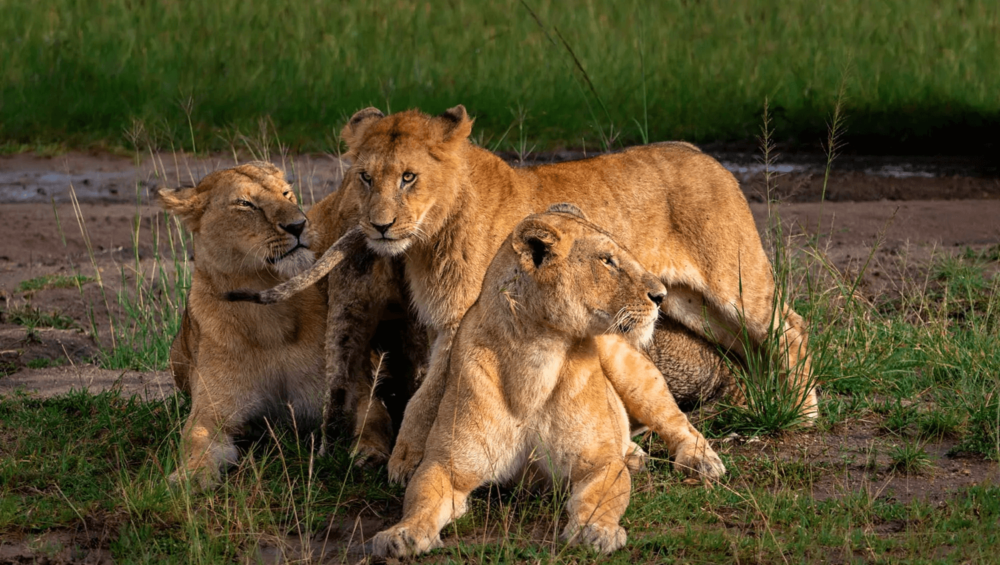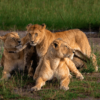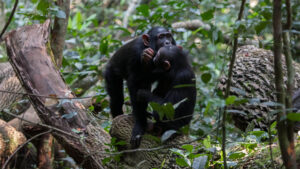Lions are majestic big cats found in parts of Africa and India. Here are some facts that showcase the fascinating characteristics and behaviors of lions in the wild
Social Structure: Lions are known for their social nature and live in groups called prides, typically consisting of related females and their offspring.
Mane: Male lions are recognized by their distinctive manes, which vary in color and size. The mane serves as a display of dominance and health.
Hunting Roles: In a pride, lionesses are the primary hunters, working together to take down prey. Male lions often defend the territory and offspring.
Territorial Behavior: Lions are territorial animals, marking their territory with scent markings to warn other prides to stay away.
Habitat: They inhabit a range of environments, from grasslands and savannas to dense bush and woodlands.
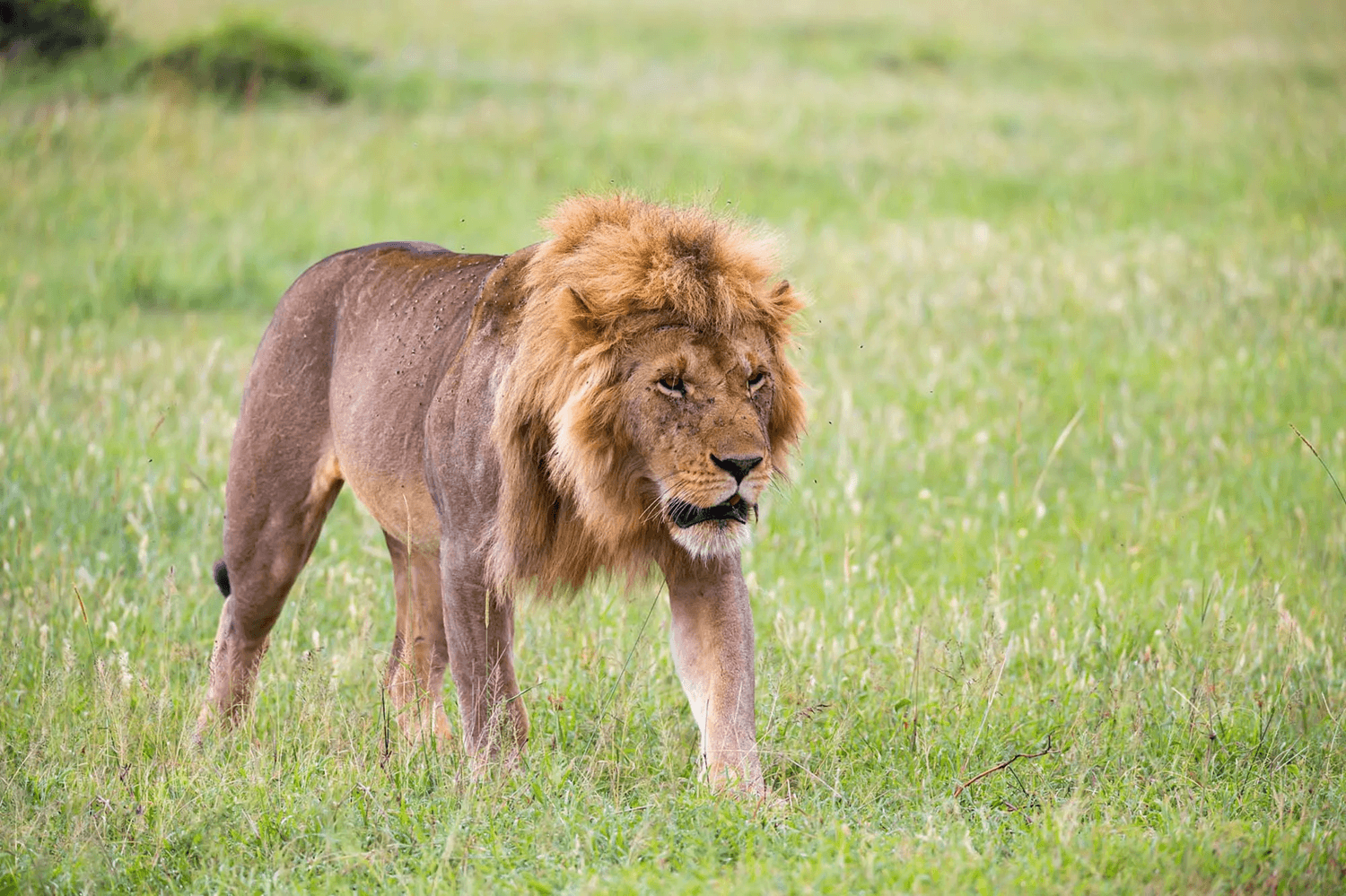
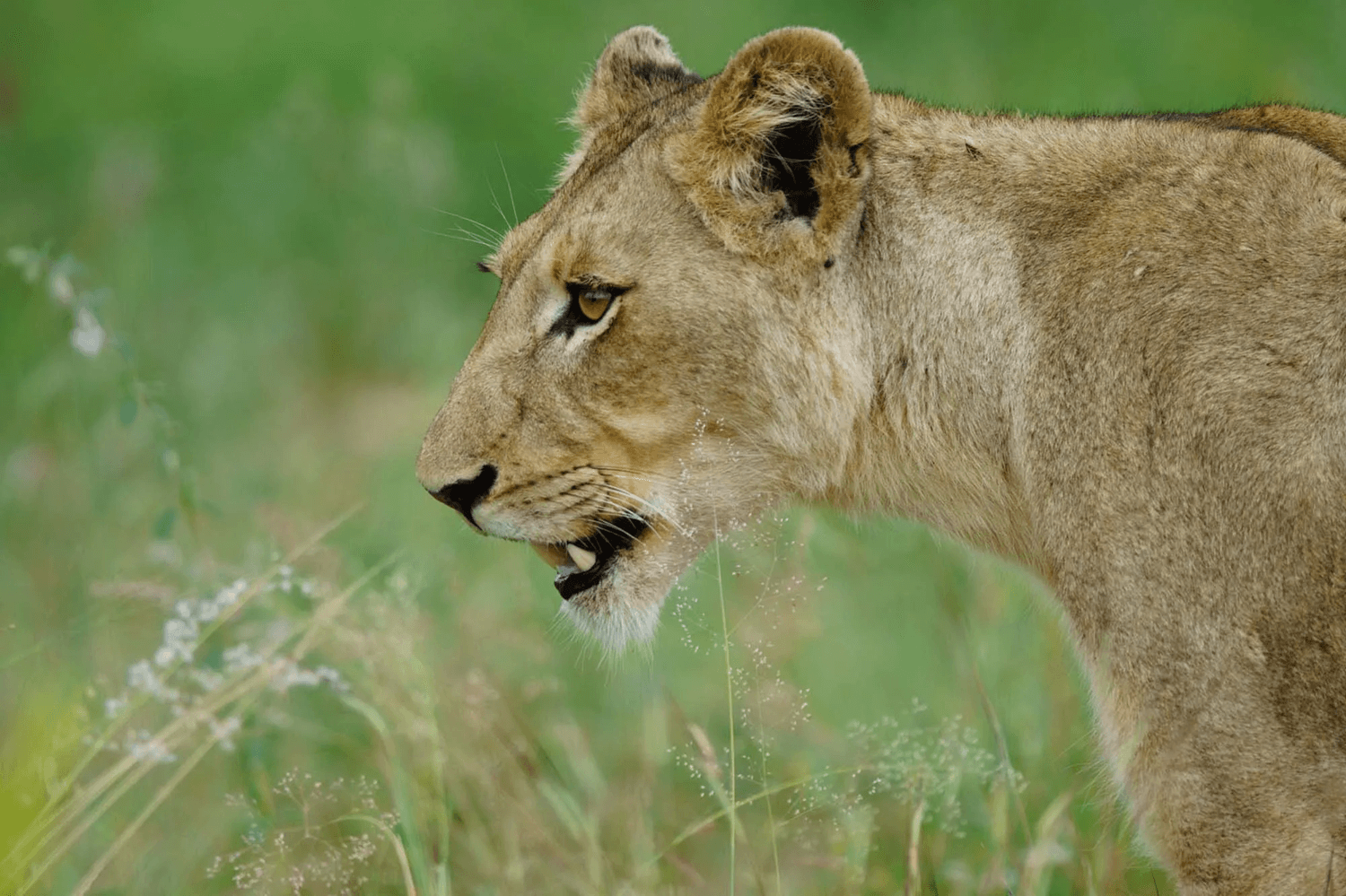
Nocturnal Activity: Lions are primarily nocturnal, meaning they are more active during the night, which aids their hunting endeavors.
Communication: Lions communicate through vocalizations such as roars, grunts, and growls, which help them coordinate within the pride.
Size and Strength: Lions are one of the largest big cat species, with males being significantly larger than females. They possess powerful limbs and strong jaws.
Diet: Lions are carnivores, and their diet includes a variety of prey, such as wildebeests, kobs, zebras, and buffalos.
Endangered Status: African lions face threats like habitat loss and human-wildlife conflict, leading to their classification as a vulnerable species. Conservation efforts are crucial for their survival. These facts showcase the fascinating characteristics and behaviors of lions in the wild and you can book your African safari through TwentyEight Tours by clicking here https://twentyeighttours.com/talk-to-us/ and you shall have a once in a lifetime encounter with the Kings of the Jungle.
